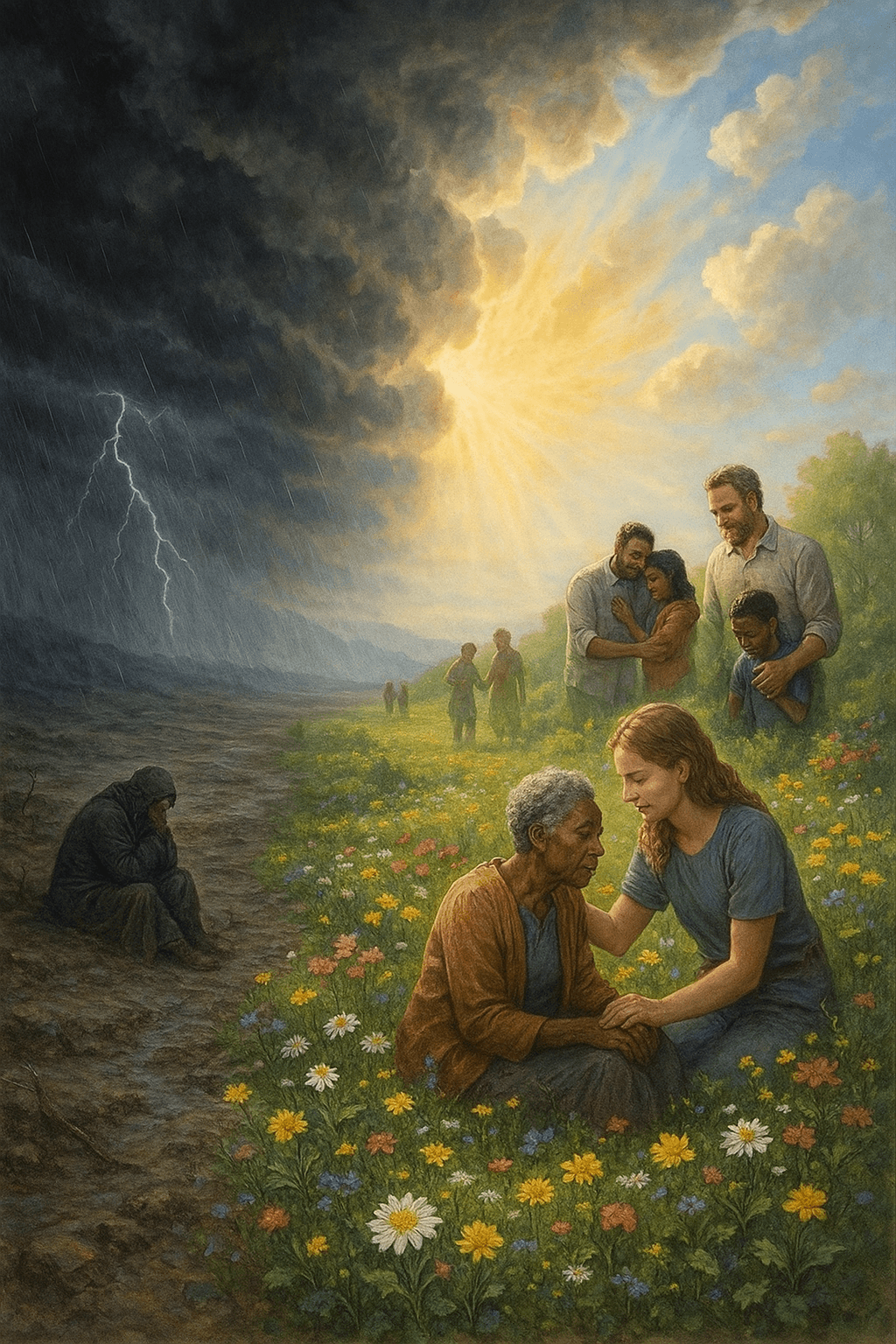Hope and Humanity: Lessons from History’s Dual Nature

To be hopeful in bad times is not just foolishly romantic. It is based on the fact that human history is a history not only of cruelty but also of compassion. — Howard Zinn
—What lingers after this line?
One-minute reflection
Why might this line matter today, not tomorrow?
Redefining Hope in Troubling Times
Often dismissed as naïve, hope during adversity is more than mere wishful thinking. Howard Zinn challenges the notion that optimism is delusional, asserting instead that it draws legitimacy from historical experience. By insisting that hope is rooted in human behavior across the ages, Zinn invites us to see optimism as a rational—and even courageous—response to hardship.
Human History: A Tapestry of Contrasts
Human history, as Zinn observes, is not a monolithic narrative of cruelty and suffering. It is equally woven with acts of compassion, solidarity, and courage. For example, during World War II’s darkest hours, ordinary individuals risked their lives to save others, as in stories of resistance in Nazi-occupied Europe. These moments serve as reminders that even amidst cruelty, humanity’s capacity for good persists.
Hope as a Catalyst for Action
Zinn’s perspective transitions seamlessly into the idea that hope is not passive. Rather, it is a motivating force that empowers people to challenge injustice and imagine alternate futures. The U.S. civil rights movement, led by figures like Martin Luther King Jr., exemplifies how collective hope fueled societal transformation. Far from disengaging, hope compels individuals and communities to act in pursuit of a better world.
Romanticism Versus Realism
While some may view belief in compassion’s triumph as unrealistic, Zinn’s analysis offers a pragmatic balance between romanticism and realism. Historical accounts, such as those documented in Zinn’s own ‘A People’s History of the United States’ (1980), reveal countless episodes where empathy and justice shaped events as profoundly as violence ever did. Recognizing this duality allows us to avoid cynicism and appreciate the full scope of the human journey.
Nurturing Hope Through Shared Memory
As we move forward, Zinn’s insight asks us to remember and amplify stories of kindness and resistance. By celebrating these moments, societies can nurture hope and resilience, inspiring new generations to continue the legacy of compassion. Thus, hope becomes not only an emotion but a conscious stance—one that acknowledges hardship yet insists on the transformative power inherent in the human spirit.